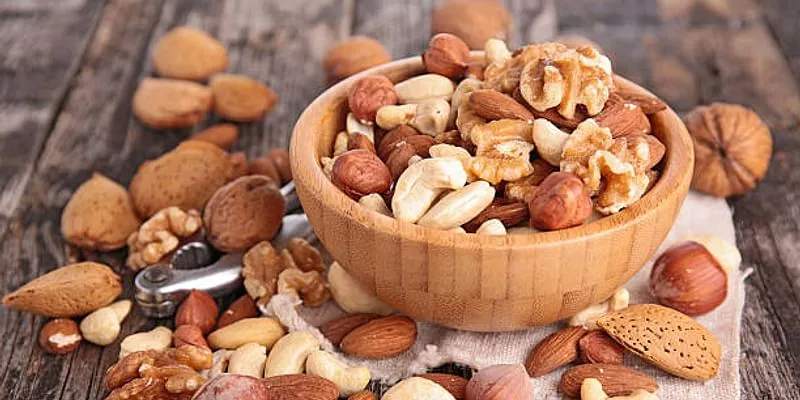With 20 store launches a month, why dry fruits brand Bolas is betting on offline retail
Starting from a cashew processing unit to becoming a Rs 1,600 crore turnover brand and now a retail triumph, here's the story of Bolas’ evolution and success.
India is the second-largest cashew-producing country in the world, with Kerala and Maharashtra leading the production. Capitalising on the opportunity, Bola Raghavendra Kamath established his own small cashew processing unit in 1958 after he had a tiff with his former employer.
What started as a small enterprise bagged its first export order from the US within two years of inception Today, Bolas Agro Pvt Ltd is a Rs 1,600 crore turnover company which specialises in the import and export of dry fruits. It recently ventured into the retail space, opening 70+ stores in three years.
Why retail?
The motivation behind expanding into retail after decades of operating under a different model lies behind the changing perceptions of consumers.
In a conversation with SMBStory, Rahul Kamath, Director of the company and the founder’s grandson, explains that dry fruit consumption in India used to be associated primarily with affluence, creating a perception that only the wealthy could afford it. However, the COVID-19 pandemic drastically altered this mindset, prompting a significant shift towards healthier dietary choices.
“We had a small set up in our factory in Mangaluru where people would come and buy dry fruits from us, but during COVID-19 lockdowns, entry was restricted. However, the demand kept popping in. In response, we made the decision to open a small retail outlet adjacent to the factory, which marked the turning point for the company,” says Kamath.
This decision marked the first step in the company’s retail strategy. It went on to open 54 stores across Tier II and III cities in Karnataka.
In July this year, also entered a metro with 20 stores in Bengaluru. So, how did a small firm make it so big? Rahul says the secret lies in a strong commitment to adapting to the evolving dynamics of the market.

Representative image
How Ahmedabad-based VastraApp manages supply chain for textile industry with its SaaS solution
Small beginnings to big winnings
For more than five decades, Bolas only focused on cashews. The company forayed into coffee export in 2005 and started importing palm and sunflower oil in 2009 as per the demand from importers in the Middle East. However, exploring other dry fruit categories in Karnataka was very expensive, says Kamath.
"Prior to the implementation of GST, the sales tax on dry fruits in Karnataka stood at approximately 14.5%, whereas in Delhi, it was a mere 5%. This discrepancy meant there was little incentive to venture into other product categories. However, the introduction of GST in 2017 paved the way for us to broaden our business horizons,” he notes.
In 2017, Kamath expanded to categories including almonds, pistachios, walnuts, dates, and all other dry fruits which accelerated the company’s business growth at 15% CAGR.
Quality at a ‘factory price’
According to the OEC, India exported $35.8 million worth of dried fruits in 2021, becoming the world's 19th largest exporter of dried fruits.
With the expansion of its business model from B2B to B2C through offline and online channels, Bolas is one of the largest suppliers of dry fruits to retail chains like D'Mart and Reliance. Kamath says that while the dry fruit market has opened up in India and people’s approach to a healthy well-balanced diet has led to a rise in demand, customers still see the packaging and quality of the product rather than nutritional value.
"At Bolas, we uphold stringent quality assessments. While conventional retailers often impose steep prices for dry fruits, what sets Bolas apart is our commitment to providing customers with factory-direct dry fruits, eliminating intermediaries and their associated costs,” he adds.
Bolas conducts quality control internally as well as through external audits.
It is also able to price its products at a lower cost as it doesn’t sell through middlemen. For example, its 500g of almonds pack sells at Rs 380 versus the market price of over Rs 500.
The way ahead
By the end of this fiscal year, Kamath envisions the inauguration of over 100 stores in various regions of India, strengthening Bolas' retail presence.
"Our retail sector is significantly enhancing our visibility, and although it's premature to provide specific figures at this point, retail is contributing 10% to our overall revenue. We aspire to amplify this contribution even further,” he notes
Bolas has also ventured into the space of packaged sweets, producing and selling sweets such as kaju katli and dry fruit barfi. Kamath discloses that the company is actively preparing to expand its offerings in the same category.
Edited by Kanishk Singh







